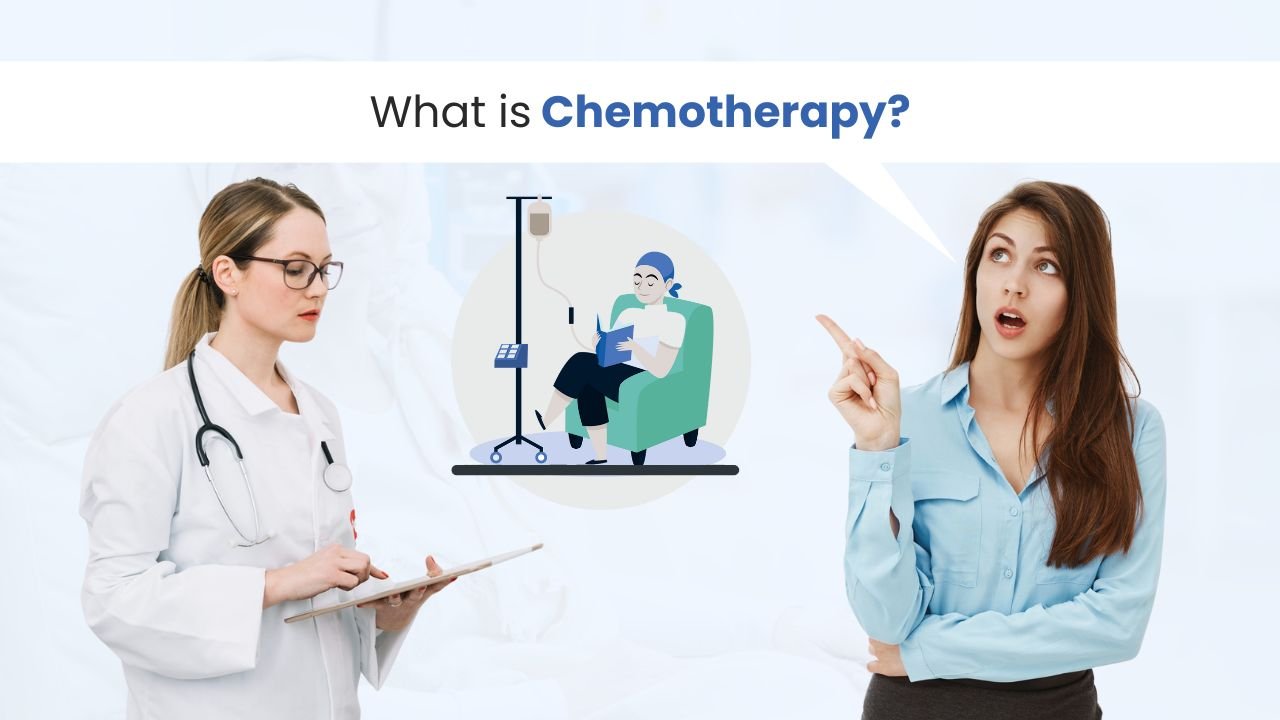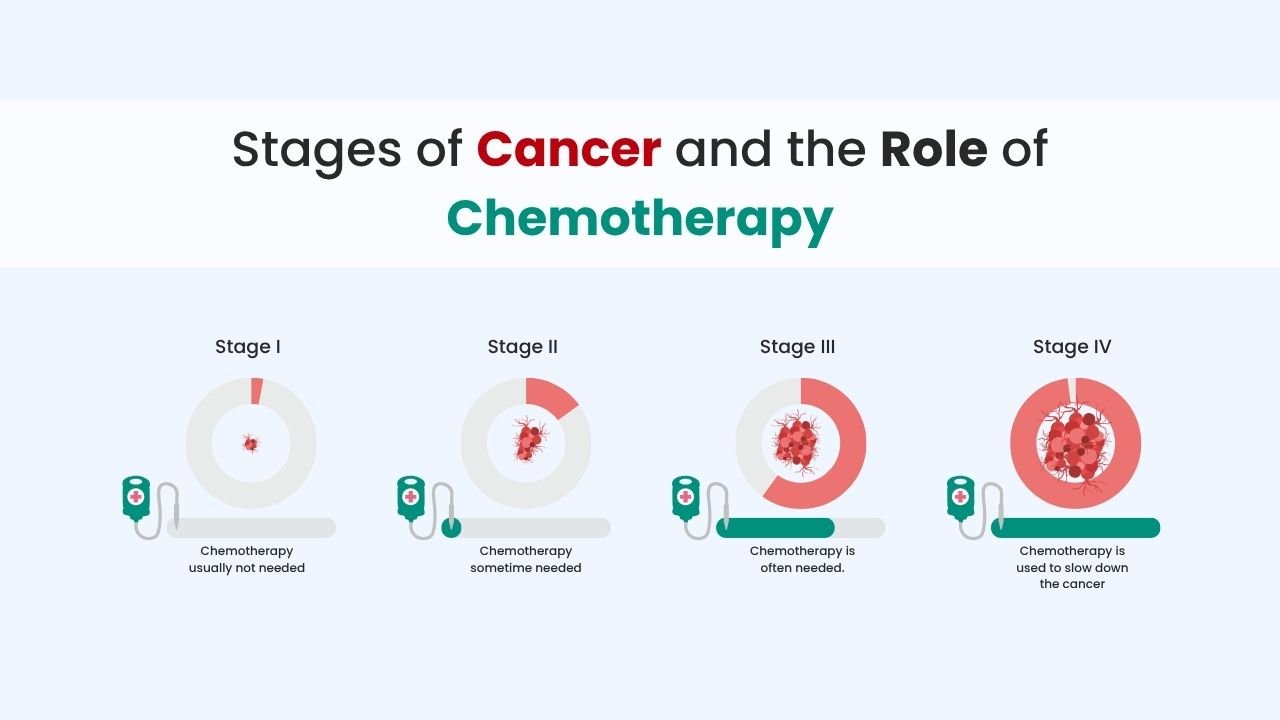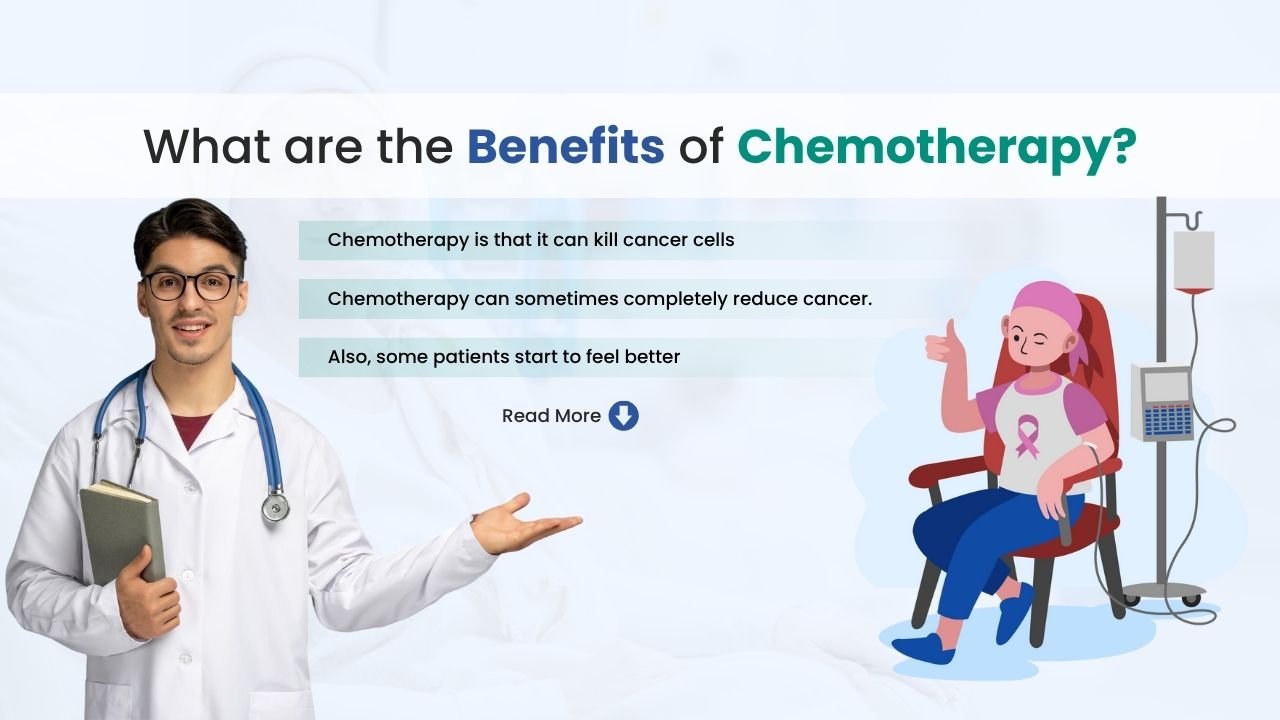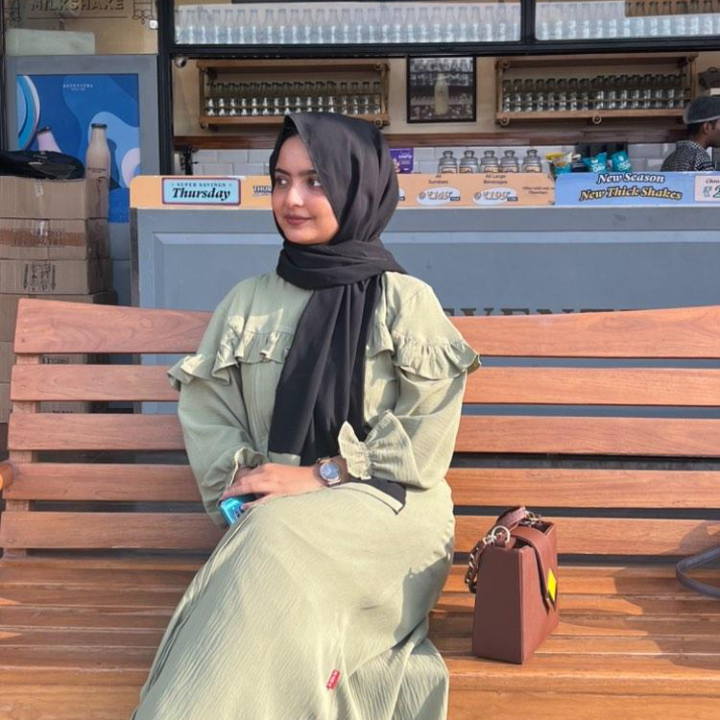
Chemotherapy is the most common treatment option, but at what stage of cancer chemotherapy is used depends on the type, stage, and location of the cancer.
Chemotherapy is a cancer treatment that uses special medicines to kill cancer cells and stop them from growing. But, at what stage of cancer chemotherapy is used often remains unclear to many patients.
However, it is an effective treatment option for all types of cancers, and the type of chemotherapy your doctor advises depends on the stage, type, and severity of the tumor; therefore, understanding at what stage of cancer chemotherapy is used becomes vital.

Chemotherapy is a treatment that uses special medicines to kill cancer cells. There are different types of chemotherapy, and each one works in its own way. Doctors choose the type based on the type of cancer a person has.
Most chemotherapy medicines are given through a vein using a drip. Some can also be administered as an injection, taken as tablets, or applied to the skin as a cream.
Chemotherapy is used to treat cancer, and it works by killing fast-growing cancer cells in the body. There are two main types of cancer for which it is used:
‣ Primary Cancer
Primary cancer means the cancer started in one part of your body. For example, if cancer begins in the lungs, it’s called primary lung cancer. Chemotherapy can help stop the cancer from growing and spreading.
‣ Metastatic Cancer
This type of cancer has spread to other parts of your body from where it first started, for example, breast cancer spreading to the bones and liver. This is also referred to as stage 4 cancer. Chemotherapy helps to control the spread and reduce symptoms.

‣ Chemotherapy treats many different types of cancer in all stages. At what stage of cancer chemotherapy is used can be best explained by looking at each stage individually:
• Stage I
The cancer is at an early stage, meaning it is small and has not spread. In most cases, surgery can remove it completely. If doctors catch the cancer early, chemotherapy is usually not needed.
• Stage II
In this stage of cancer, it means that the tumor is larger than in stage I, but the cancer hasn't started to spread into the nearby tissues. Sometimes, stage II means that cancer cells have spread into lymph nodes close to the tumor, which depends on the particular type of cancer.
• Stage III
The cancer has spread further, to nearby lymph nodes and tissues. Chemotherapy is often needed. Sometimes, it is given before surgery to shrink the tumor and make it easier to remove.
• Stage IV
This is the most advanced stage, and the cancer has spread to other parts of your body, like the lungs, liver, and bones. Chemotherapy is used to slow down the cancer, reduce symptoms, and help you feel better.

Whether a patient needs chemotherapy depends on several factors, including at what stage of cancer chemotherapy is used, the cancer type, and overall health.. You should talk openly with your doctor to understand your situation and learn about your treatment options.
FAQs
Sometimes, if there is a higher chance of the cancer coming back and spreading, doctors may suggest chemotherapy after surgery.
The average chemotherapy cost in India starts from 350-1500 USD Per Cycle; however, the cost depends on various factors, so consulting with the doctor will help you to make an informed decision.
You may need to stay for 20 days to 3 months, depending on how many chemo cycles are needed.
Chemotherapy can be given in different ways, like oral, through a vein (IV), subcutaneous, and intramuscular.
It depends on your overall health; some people feel tired or weak. The most common side effect is fatigue.
It depends on the type of cancer; chemotherapy can help control stage 4 cancer and improve life quality, but it often doesn’t cure it.
Chemotherapy can be used at any stage, depending on the type of cancer and the patient’s condition.
Some early-stage breast cancers may not need chemotherapy, especially hormone-positive and HER2-negative types.
Generally, the treatment itself is not painful, but some people feel a little discomfort when the IV is given.
Most people have about 4 to 8 cycles of chemotherapy during the full treatment.

Written By
Hi! I’m Shafaq Khan, a content writer at Mejocare.com, where I create simple, easy-to-understand healthcare content. With 1+ years of experience, my goal is to make health topics clear and helpful for everyone, no matter their background.
At Mejocare, I focus on turning complicated medical information into content that’s both informative and easy to read. Whether I’m writing blog posts, articles, or website copy, I aim to provide useful information that helps people take control of their health and connect with the right healthcare providers.
I’m passionate about helping people access reliable health information in a way that’s easy to understand and act on. If you’d like to connect or have any questions, feel free to reach out!
SOURCE
HISTORY
At Mejocare, we prioritize accuracy and reliability. Our content is based on peer-reviewed studies, academic research, and medical associations. We avoid tertiary references. Learn more in our editorial policy. Trustworthy health information for you.
https://www.cancer.org/cancer/managing-cancer/treatment-types/chemotherapy.html#:~:text=to%20get%20chemo?-,What%20is%20chemotherapy?,or%20applied%20to%20the%20skin. Para 2 https://www.cancercenter.com/community/blog/2021/03/benefits-and-risks-of-chemotherapy#Q2 para 4 https://www.americanoncology.com/blogs/which-stage-of-cancer-needs-chemotherapy-treatment para 4 https://www.americanoncology.com/blogs/which-stage-of-cancer-needs-chemotherapy-treatment para 5 https://www.medparkhospital.com/en-US/disease-and-treatment/chemotherapy#how-long Para 11 https://www.medparkhospital.com/en-US/disease-and-treatment/chemotherapy#how-long Para 3 https://www.healthline.com/health/cancer/at-what-stage-of-cancer-is-chemotherapy-commonly-used para no 1 https://mangalprabhu.com/at-what-stage-of-cancer-is-chemotherapy-used/ para 1
CURRENT VERSION
Our care team can help you.
